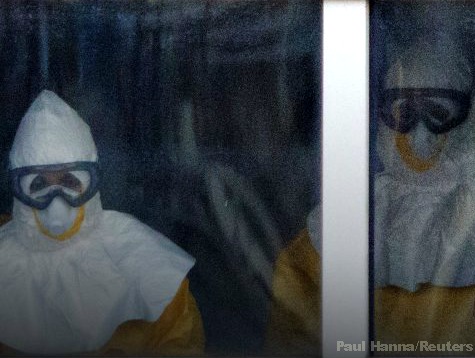A Dallas nurse who cared for Liberian patient Thomas Eric Duncan — not his family or friends — has contracted the virus. Why health-care professionals are feeling especially alarmed.
The announcement that a second case of Ebola has been diagnosed in Dallas should provide an enormous sense of security for the worried general public — after all, the case has occurred not in casual contacts or even family members but rather, as predicted, in someone who cared for the patient in the late stages of his infection.
Against the sigh of semi-relief, though, is the shiver of fear as a collective chill runs down the spine of health-care workers in the United States, Africa, and Spain charged with caring for infected patients.
According to reports on Sunday, a female nurse who was involved in the treatment of Thomas Eric Duncan has been confirmed to be carrying the disease, making her the first case of Ebola transmitted in the United States. The case further complicates an already thorny question: Are health-care workers treating Ebola ever really insulated from the disease?
The spread of Ebola from patient to health-care worker is a new development here, but it has been raging in West Africa for months. In the World Health Organization’s most recent report, it is identified as “an alarming feature of [the] outbreak.”
As of Oct. 8, the WHO reported 8,376 cases worldwide, of which almost half — 4,024 — had died. Among medical personnel, there were 416 confirmed cases and 233 deaths, a mortality rate of more than 56 percent. While the number of health-care worker deaths may seem small in comparison to the overall death toll, just three physicians are covering six of the hardest-hit counties in Liberia, according to the CDC. The high death rate among doctors and nurses could weigh heavily on prospective volunteers.
In some ways, the concept of a health-care professional contracting the disease from a patient in the United States is more alarming. In West Africa, most medical facilities lack basic supplies, meaning many health-care workers there who contract the disease probably never had proper protective gear in the first place.
In the United States, with its endless supply of gloves, masks, boots, and gowns, transmission of the disease from patient to health-care worker implies something different. Personal protective gear is only as effective as the protocol for using it.
Read more at The Daily Beast.

COMMENTS
Please let us know if you're having issues with commenting.